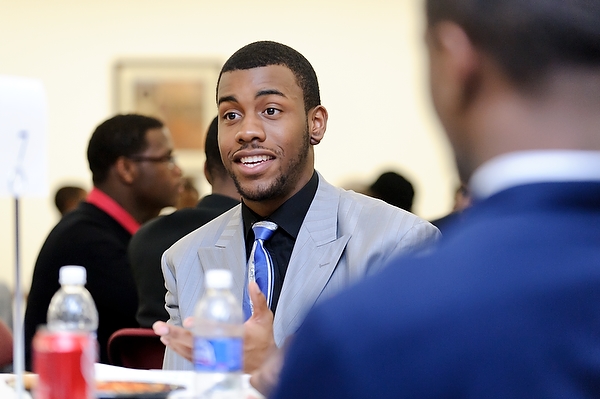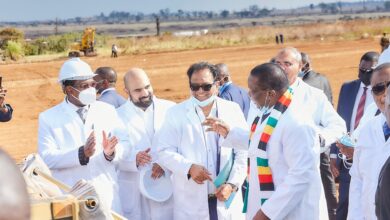What Present-Day CEOs Can Learn From Young People

The top global figures next generation leaders considered to have had the greatest impact on the world in the past 50 years were: Nelson Mandela, Steve Jobs, Barak Obama, Bill Gates, and Elon Musk. They also named Justin Trudeau, Malala Yousafzai, Martin Luther King Jr and Muhammad Yunus in the top 10.

Tomorrow’s leaders optimists as well as realists
One of the most eye catching findings from the AIESEC results is the degree of confidence these young leaders have. For instance, 60% believe economic growth will improve over the next 12 months compared to only 27% of CEOs. This might be the optimism of youth, but could also reflect a more profound insight into trends like the digital revolution, where the younger generation sees opportunity, and the previous ones cost and risk.
Barry Vorster, PwC Leader of People & Organisation, says: “Although tomorrow’s leaders are optimistic about the future they are also realists. They look for opportunity, but are not naïve about risk. They care about wider social and environmental issues, and understand how stakeholder expectations are changing. While pay and incentives are important, they want to work for companies that have similar values to their own and place a lot of emphasis on the nature of their work.”
Ana Saldarriaga, President of AISEC International 2015-2016, comments: “AIESEC leaders – and generally young people today – are very purpose-driven. This is further underlined through the findings of AISEC’s global YouthSpeak Survey. Featuring more than 200.000 responses to date, the survey outlines the three motivations of youth globally: family, purpose in life and love. Both a strong sense of purpose and value are something youth requires in a workplace and looks for in their employers. I believe more businesses are beginning to understand this and are taking bold steps in putting their purpose into practice.”
While they are more optimistic than CEOs in many respects, AIESEC respondents also believe that organisations should be more concerned about some of the threats they face than CEOs typically are.
–86% of AIESEC respondents say companies should be worried about cybercrime, while only 61% of CEOs are concerned about this
–85% see a threat in shifts in consumer behavior, as against 60% of CEOs
–83% cite a lack of public trust in business, compared to 55% of CEOs
–There’s also a clear difference in how the two groups perceive risk. Reflecting the struggle many business leaders face in shifting from a short term to long term outlook, CEOs ranked their top three concerns as over-regulation, geopolitical uncertainty, and exchange rate volatility. By contrast, AIESEC respondents took a more long term view, believing CEOs should be more concerned about longer term issues of social instability, climate change and environmental damage, and unemployment.
Young leaders challenge CEOs to put their business purpose into practice
The survey finds that both generations are agreeing that business success in the 21st century will be defined by more than just financial profit. However AIESEC respondents believe businesses today are still mainly focused on shareholder value, despite CEOs progress and future aspirations to connect more strongly with wider stakeholders.
Underlining this, there are interesting differences too, in how the two prioritise stakeholder groups. Both agree that customers and clients have the biggest influence on corporate strategy, and that governments and regulators are important. However the media are seen as much more significant by AIESEC leaders (74%) compared to CEOs (25%), and there is a similar pattern with local communities (52% versus 27%), the general public (50% versus 30%), and NGOs (40% versus 9%).
This suggests the young leaders have a much broader perception of what communicating to a wider stakeholder audience means in 2016. In particular how technology has made communicating and connecting with stakeholders possible instantaneously, the challenges that presents to how companies are viewed, and how organisations need to adapt as a result.
Education will make or break tomorrow’s leaders
Alongside the questions included in the CEO Survey, AIESEC respondents were also asked about their views of what defines leadership, how to nurture it, and how it’s changing.
These young leaders are clearly believers in nurture not nature: 64% said the education system is the single most important factor in shaping and preparing young people for leadership roles in the future. Despite this, 70% believe the education system in their own country is failing to fully equip students with the skills they need to survive and thrive in the digital age.



